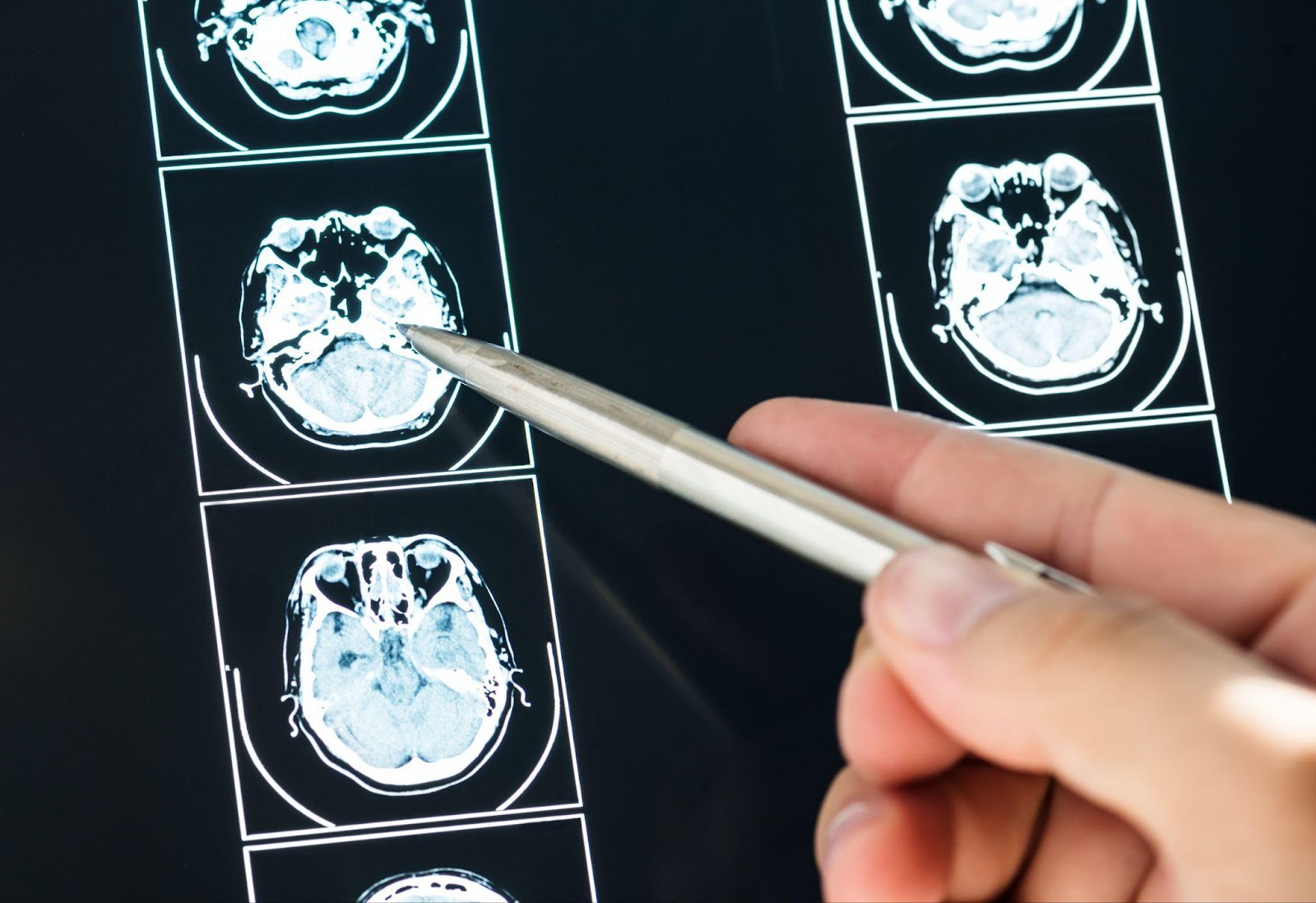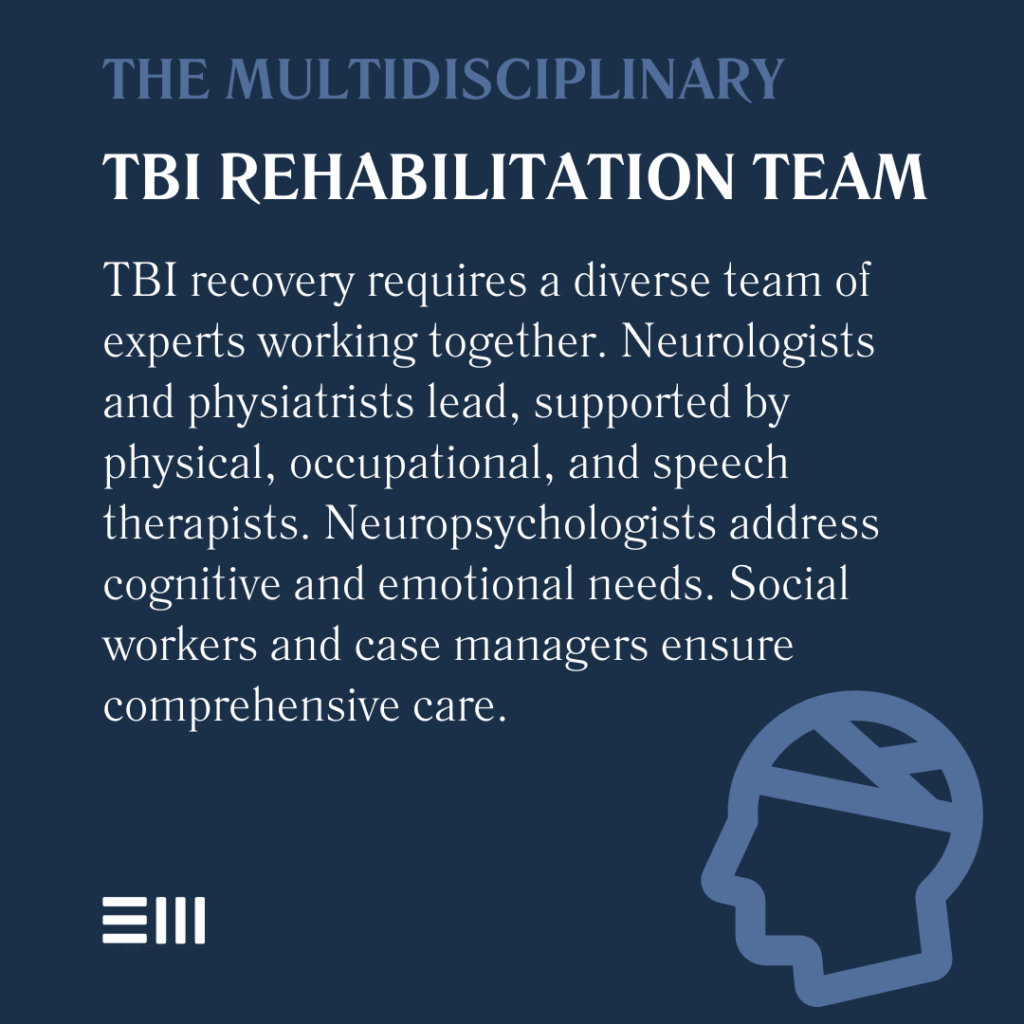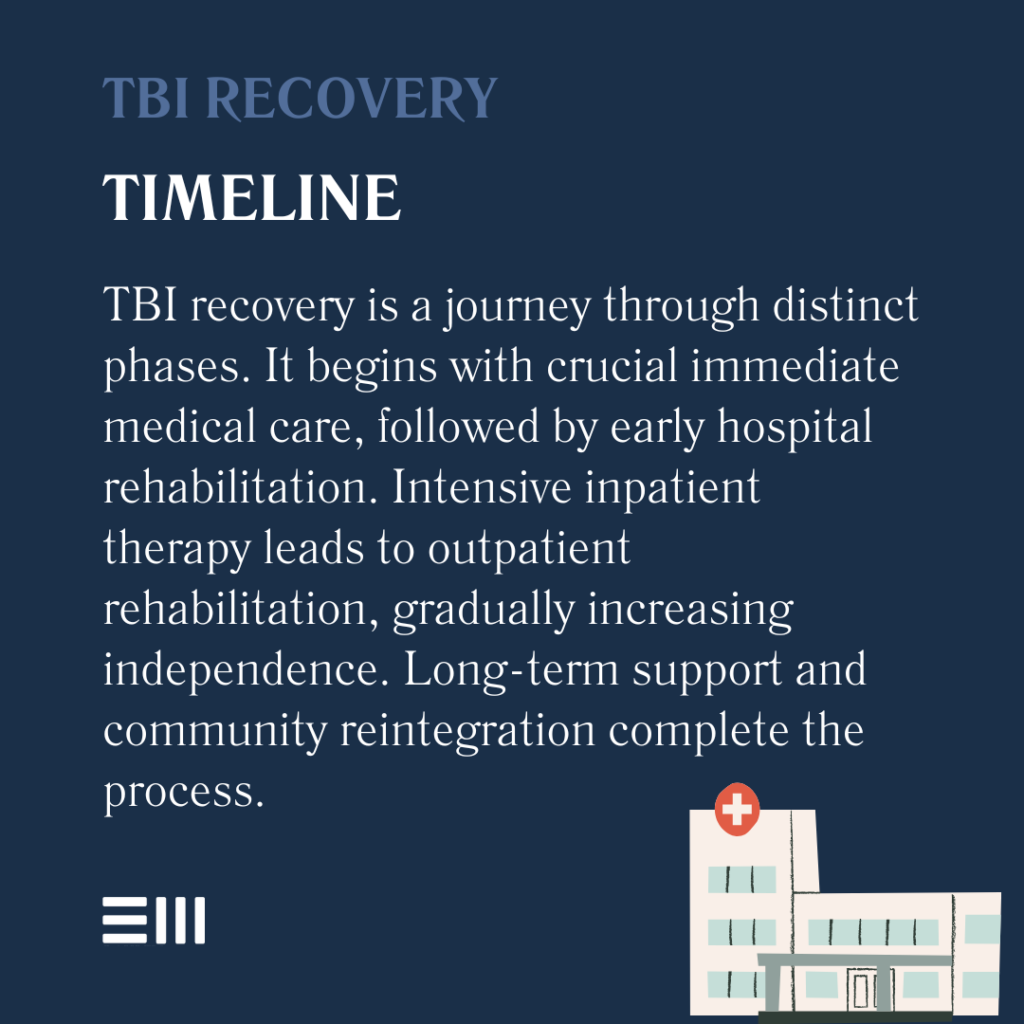
Every 23 seconds, someone in the United States sustains a traumatic brain injury (TBI).
In Alabama alone, over 10,000 individuals are hospitalized or visit emergency rooms due to TBI each year.
These staggering numbers underscore the critical need for comprehensive rehabilitation and support resources for TBI survivors and their families.
Understanding Traumatic Brain Injury
Traumatic brain injury occurs when a sudden, external force damages the brain. This can result from various incidents, including car accidents, falls, sports injuries, or violence.
The impact of a TBI can be life-altering, affecting cognitive function, physical abilities, and emotional well-being.
TBI severity ranges from mild concussions to severe injuries that can lead to long-term disability or even death.
Regardless of the severity, proper rehabilitation and support are crucial for maximizing recovery and improving quality of life.
The Importance of Specialized Rehabilitation
Rehabilitation for TBI is a complex process that requires a multidisciplinary approach. Each brain injury is unique, and recovery paths vary significantly among individuals.
Specialized rehabilitation programs are designed to address the specific needs of TBI survivors, focusing on:
- Cognitive rehabilitation;
- Physical therapy;
- Occupational therapy;
- Speech and language therapy;
- Psychological support; and
- Social skills training.
These programs aim to help individuals regain lost skills, learn compensatory strategies, and adapt to their new circumstances.
Early intervention and consistent, long-term support are key factors in achieving the best possible outcomes.

Available Resources in Alabama
Alabama offers a range of resources for TBI survivors and their families. These include:
Medical Facilities and Rehabilitation Centers
- University of Alabama at Birmingham (UAB) Traumatic Brain Injury Model System;
- HealthSouth Rehabilitation Hospital of North Alabama; and
- Encompass Health Rehabilitation Hospital of Montgomery.
These facilities provide comprehensive inpatient and outpatient rehabilitation services tailored to TBI patients.
Support Groups and Organizations
- Alabama Head Injury Foundation (AHIF);
- Brain Injury Association of America (BIAA); and
- Local TBI support groups in major cities like Birmingham, Montgomery, and Huntsville.
These organizations offer emotional support, education, and advocacy for TBI survivors and their families.
State Programs
- Alabama Department of Rehabilitation Services (ADRS) – Traumatic Brain Injury Program; and
- Alabama Medicaid Waiver Programs.
These programs provide financial assistance, case management, and access to necessary services for eligible individuals with TBI.
Navigating the Recovery Journey
The path to recovery after a TBI can be challenging and overwhelming.
Here are some key steps to help navigate this journey:
- Seek immediate medical attention following a head injury;
- Work with healthcare professionals to develop a comprehensive rehabilitation plan;
- Connect with local support groups and organizations;
- Explore available state and federal resources;
- Educate yourself and your family about TBI and its effects; and
- Be patient and celebrate small victories in the recovery process.
Remember, recovery is often a marathon, not a sprint. Persistence and a strong support system are essential for long-term success.

Emerging Treatments and Research
The field of TBI rehabilitation is constantly evolving. Researchers in Alabama and across the country are exploring new treatments and technologies to improve outcomes for TBI survivors.
Some promising areas include:
- Neurofeedback therapy;
- Virtual reality-based rehabilitation;
- Stem cell treatments;
- Advanced neuroimaging techniques; and
- Brain-computer interfaces.
While many of these treatments are still in experimental stages, they offer hope for enhanced recovery and improved quality of life for TBI survivors in the future.
Legal Considerations and Patient Rights
Understanding your rights as a TBI survivor or caregiver is crucial. In Alabama, there are laws and regulations designed to protect individuals with disabilities, including those with TBI.
These include:
- The Americans with Disabilities Act (ADA);
- The Individuals with Disabilities Education Act (IDEA); and
- Alabama-specific disability rights laws.
Familiarizing yourself with these legal protections can help ensure access to necessary services and accommodations in various aspects of life, including education, employment, and public spaces.
Caregiver Support and Resources
Caring for a loved one with TBI can be physically and emotionally demanding. Alabama offers several resources to support caregivers:
- Respite care services;
- Caregiver support groups;
- Educational workshops and training programs; and
- Online resources and forums.
Taking care of your own well-being is essential for providing the best possible care to your loved one with TBI.
Frequently Asked Questions About TBIs in Alabama
Navigating the world of traumatic brain injury rehabilitation and support can be complex.
Here are answers to some commonly asked questions we receive about TBIs in Alabama to help guide you through this challenging journey.
How Long Does TBI Rehabilitation Typically Last?
The duration of TBI rehabilitation varies greatly depending on the severity of the injury and individual factors. Mild TBI (concussion) recovery may take a few weeks to several months.
Moderate to severe TBI rehabilitation can last months to years, with some individuals requiring ongoing support indefinitely.
What Types of Professionals Are Involved in TBI Rehabilitation?
A multidisciplinary team typically includes:
- Neurologists;
- Physiatrists (rehabilitation physicians);
- Physical therapists;
- Occupational therapists;
- Speech and language pathologists;
- Neuropsychologists;
- Social workers; and
- Case managers.
This comprehensive team approach ensures that all aspects of recovery are addressed, providing the best possible outcomes for TBI survivors.
How Can I Find the Right Rehabilitation Program in Alabama?
To find the right program:
- Consult with your treating physician or neurologist;
- Contact the Alabama Head Injury Foundation for recommendations;
- Research facilities accredited by the Commission on Accreditation of Rehabilitation Facilities (CARF);
- Visit potential facilities and ask about their experience with TBI patients; and
- Check if the program offers a continuum of care from inpatient to outpatient services.
Taking the time to research and visit different programs can help ensure you find the best fit for your specific needs and recovery goals.
What Financial Assistance Is Available for TBI Rehabilitation in Alabama?
Financial assistance options include:
- Private health insurance;
- Medicare and Medicaid;
- Alabama Medicaid Waiver Programs;
- Veterans benefits (for service-related injuries);
- Workers’ compensation (for work-related injuries);
- State and federal disability benefits; and
- Non-profit organizations offering grants or financial aid.
Don’t hesitate to explore multiple options and speak with financial advisors or social workers who can guide you through the process of securing the necessary funding for your rehabilitation.
Can a Person Fully Recover from a Traumatic Brain Injury?
Recovery varies greatly depending on the severity and location of the injury. While many people with mild TBI recover fully, those with moderate to severe TBI may experience long-term or lifelong effects.
However, with proper rehabilitation and support, significant improvements in function and quality of life are often possible.
How Can Family Members Best Support a Loved One with TBI?
Family support is crucial in TBI recovery. Ways to help include:
- Educating yourself about TBI;
- Participating in rehabilitation sessions when appropriate;
- Creating a supportive and structured home environment;
- Encouraging independence while ensuring safety;
- Joining support groups for families of TBI survivors; and
- Taking care of your own physical and mental health.
Remember, supporting a loved one with TBI is a marathon, not a sprint. It’s essential to practice self-care and seek support for yourself as well.
Are There Any Experimental Treatments Available for TBI in Alabama?
Several research institutions in Alabama, including the University of Alabama at Birmingham, participate in clinical trials for TBI treatments.
Consult with your healthcare provider about potential experimental treatments and their suitability for your specific case.
How Does TBI Affect a Person’s Ability to Return to Work or School?
The impact on work or school varies depending on the injury severity and affected brain areas. Many people with mild TBI return to their previous activities after recovery.
Those with more severe injuries may require accommodations or may need to explore new educational or vocational options. Vocational rehabilitation services can assist in this process.
What Long-term Support Is Available for TBI Survivors in Alabama?
Long-term support options include:
- Outpatient rehabilitation services;
- Day treatment programs;
- Home health services;
- Community re-entry programs;
- Support groups;
- Vocational rehabilitation;
- Independent living skills training; and
- Ongoing case management through state programs.
Connecting with these long-term support services can help TBI survivors continue to make progress and maintain their quality of life long after the initial rehabilitation phase.
Take the Next Step in Your TBI Recovery Journey
Your path to recovery and support after a traumatic brain injury doesn’t have to be traveled alone. At Baxley Maniscalco, we’re dedicated to guiding TBI survivors and their families through every step of the rehabilitation process.
Our experienced team understands the unique challenges faced by those affected by TBI. We’re here to help you navigate the complex world of rehabilitation, support services, and legal considerations.
Contact Baxley Maniscalco today to schedule a consultation and learn how we can support you in accessing the resources and care you need.
Can't find what you're looking for? Search our site below.










